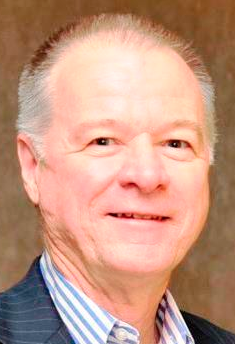The Missing Marshmallows and Selling Radio

While browsing YouTube I stumbled on some videos called the “The Marshmallow Test” and I needed to find out more.
Back in the 1960’s Walter Mischel a Stanford University professor conducted studies on delayed gratification called “The Marshmallow Test”. A child was offered a choice between one marshmallow (or cookie) immediately or two marshmallows / cookies if they waited. The professor then left the room for about 20 minutes. Some children quickly grabbed the marshmallow and ate it. Other children waited.
A significant test
Of the original 600 participants Mischel’s follow up in the 80s and in 2006 found that the 30% who were able to wait for the rewards and received the two cookies had significantly better life outcomes – education, careers, health, relationships.
Check out what an example of the test looks like, it’s quite cute watching what the kids go through:
{youtube}QX_oy9614HQ{/youtube}
But here’s the thing; what’s the “Marshmallow Test” got to do with business and in particular selling media? Why should we care who ate the marshmallows?
What’s the connection?
Think about what the little kids went through and how that translates into key adult behaviours particularly in the sales and selling arena.
Aren’t we looking for sales people who have many of the traits demonstrated by those who successfully completed the test?
– Emotional intelligence (delayed gratification)
– Consistency is important (avoid the impulse)
– Patience is required (the rewards will follow)
– Competitiveness (I’ll win)
– Goal setting (a plan to get “two”)
– Just showing up is sometimes vital
– Persistence is needed (wait, don’t give up)
– The sales cycle can be lengthy (for kids a 15 minute wait is a long time!)
– Strategic thinking on the run (what do I need to do?)
Many radio companies invest thousands of dollars in sales training, hoping to improve team selling skills. The problem is a company can hire the greatest sales trainer with the greatest content, but nothing will change if the sales team doesn’t practice and implement some or all of the skills.
The difference
Just like advertising needs frequency, a major key to learning is repetition. After attending sales training, there’s a clear difference between the “marshmallow-eating” media salesperson and the one who waits. One who switches off their television to review the notes they made in the training, while the other one never looks at their notes again.
Then there is the one who logs off her Facebook page to rehearse or practice what was taught – something that reinforces the skill. The other one checks out what their “friends” are up to.
The good to great media sales person delays the gratification of pleasure and finds ways to achieve excellence. The other one enjoys immediate gratification and settles for being an average performer (or worse a non-performer!)
When you are next looking for a new sales team member consider some interview questions on delayed gratification. Find out how long they have pursued a goal or what they sacrificed to achieve a goal. You’ll find out whether or not you have a candidate that is willing to be persistent, consistent, goal focused and who probably has a high level of emotional intelligence.
So who’s for a marshmallow??
Stephen Pead is a media industry sales and marketing veteran of 30 years with significant experience in sales, sales management and general management. He is based in Sydney and specialises in providing training and coaching for salespeople and sales managers via his company Sales Solutions ([email protected])


